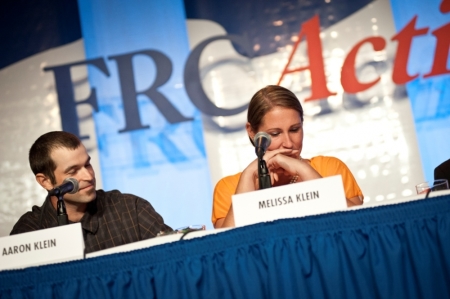Did Oregon Gov't Agency Collude With LGBT Group Against Christian Bakers Who Refused to Bake Cake for Gay Wedding?

There may be evidence that the government agency in charge of enforcing Oregon anti-discrimination laws colluded against Aaron and Melissa Klein, former owners of Sweet Cakes by Melissa bakery, with the pro-LGBT group Basic Rights Oregon.
The Daily Signal, the news arm of The Heritage Foundation, exposed the communications contact between officials at the Oregon Bureau of Labor and Industries and Basic Rights Oregon, obtained through a public records request, in their story titled, "Emails Raise Questions of Bias in Case Against Bakers Who Denied Service for Same-Sex Wedding."
The communications between the two groups raises questions of the impartiality of the government organization tasked with deciding to bring a case against the Kleins, who were forced to close their bakery after declining to bake a wedding cake for a lesbian marriage ceremony and saddled with over $150,000 in damages.
Bureau of Labor and Industries Commissioner Brad Avakian, who will determine the final fine paid by the Kleins, appears to be far from impartial. The Daily Signal reported on the conflict of interest:
"Emails also show Avakian purchasing tickets costing hundreds of dollars to attend Basic Rights Oregon's annual fundraising galas and gay pride parades, while his agency's case against the Kleins was underway."
The Daily Signal further uncovered in its report that in 2012, "Basic Rights Oregon donated almost $8,000 to Avakian's bid for commissioner."
The Christian Post reached out to the Oregon Bureau of Labor and Industries for comment but did not receive a response by press time.
The Daily Signal reported the communications director for the Bureau of Labor and Industries mostly ignored its press inquires about the case against the Kleins, but were quick to inform Basic Rights Oregon of updates in the case, sometimes sending them texts about new or developing updates.
The two groups even communicated together about avoiding questions from the Daily Signal, a conservative media site.
The Daily Signal did report that the Bureau of Labor and Industries provided a statement to them where they reiterated their commitment to "fair enforcement."
In a related essay on cronyism last week at The Federalist, Michael A. Needham and Ryan T. Anderson discussed how cronyism and collusion, especially within the courts, is infecting culture.
Cultural cronyists often start in the courts," declared Needham and Anderson, "where they leverage the networks and institutions they dominate in law and academia to convince sympathetic judges to enact sweeping rulings that declare their core social priorities to be fundamental rights."
Almost prophetically in terms of this case, the two noted, "Progressive allies often have a seat at the table when the government decides how to crack down on civic institutions that don't toe the Progressive cultural line."
Avakian is expected to rule on the final penalty against the Kleins this summer.
Hans von Spakovsky, a senior legal fellow at The Heritage Foundation, called the agencies action "a clear conflict of interest.
"State agencies have a duty to represent the best interests of the general public, declared von Spakovsky, "not the interests of one particular advocacy group.
"The relationship shown by these communications is inappropriate and raises basic questions about the objectivity, bias, and fairness of this agency and its proceedings."
The Kleins attorneys are hopeful that the newly uncovered communications will once and for all prove clear bias in the case against their client. The Heritage Foundation published a motion by the attorneys to reopen the case because of new evidence based on bias and collusion.





















